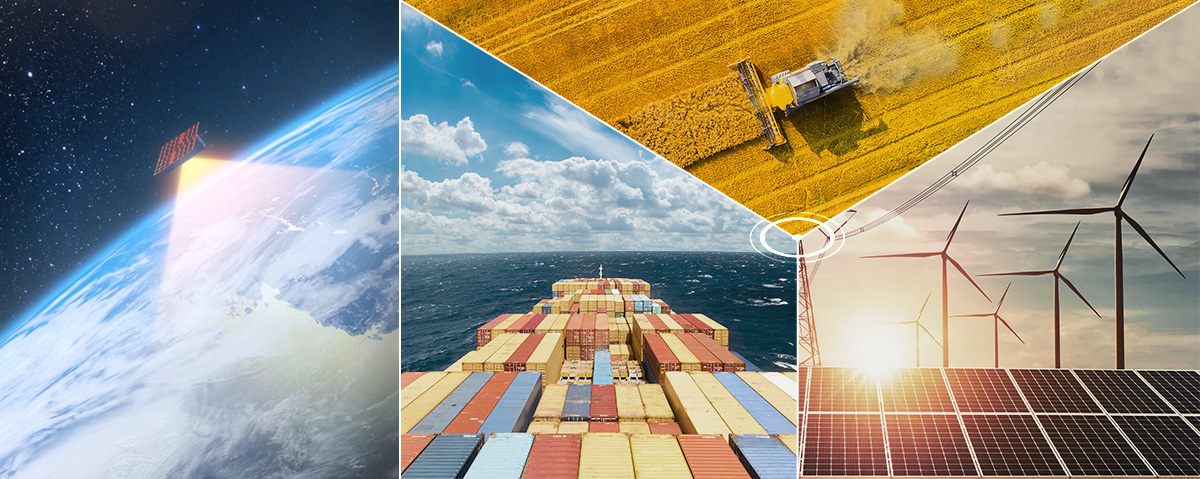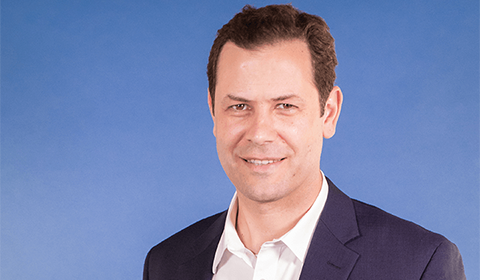Astrocast provides Soracom customers access to global Satellite IoT connectivity
27 Jul 2022
Low power bidirectional Satellite IoT embedded into Soracom’s platform, offering connectivity in areas not covered by terrestria...

LAUSANNE, Switzerland, February 1, 2022 – Astrocast SA today launches its commercially available cost-effective, bidirectional satellite IoT (SatIoT) service, to connect IoT devices globally when outside of cell-based terrestrial networks at a comparable cost. Accessibility to Astrocast’s Satellite IoT service has the potential to transform the business model for global IoT, opening the door to a raft of new, powerful applications that will accelerate change and deliver tangible value to businesses, individuals and the environment.
Utilising its own recently launched nanosatellite constellation in Low Earth Orbit, Astrocast offers affordable connectivity for all and supports applications in asset tracking, telemetry and telematics; as it fosters innovation across sectors including maritime, agriculture & livestock, environment & utilities, land, transport, freight & storage, mining, oil & gas. By default, IoT solutions implemented in many of these situations are deployed in remote locations – from mines to farmland, ships to oil platforms. Astrocast’s solution minimises the need for human intervention and repair, wherever possible, safeguarding the business case.
In any remote IoT deployment, device size, power consumption and reliability are priority concerns. Astrocast’s small-sized devices offer low power consumption and long battery life (up to 10 years). These considerations become vital as organisations embark upon deploying a strategic SatIoT initiative. Just by combining good quality battery technology with an intelligent approach to data transmission, the lifecycle of an IoT solution is significantly extended.
Astrocast’s devices only transmit data when satellites are in range, instead of continuously. This radically increases battery life, especially in applications that do not require constant information updates. In addition, this reduces the price of data for end-users.
Bidirectional IoT has a significant role to play. The ability to send commands back to assets, rather than just receive data, is hugely powerful and enables an array of new use cases, including remote management of equipment. For example, it enables farmers to command silos to release food, open gates or manage irrigation systems, without any need for expensive and often hard-to-source human interaction. Utility companies can remotely control water management systems in line with flood prevention strategies. With information seamlessly integrated with existing analytics, AI, or machine learning solutions, organisations have the power to use this data to improve understanding, and direct actions of remote assets.
Fabien Jordan, CEO of Astrocast says,“So far, organisations have struggled to create a business case for deploying IoT solutions that can offer comprehensive global coverage, as well as efficient and reliable connectivity.”
“There is now an opportunity to use satellite IoT to increase visibility, transparency, and control over assets globally – and the potential for use cases across an array of sectors is almost limitless. What is more, in the past, these solutions have been too complex, costly, or simply unavailable. But, thanks to developments in satellite IoT technology, this is changing; and organisations that recognise the potential of going beyond terrestrial IoT will be able to create new competitive advantages too.”
Fabien Jordan, CEO of Astrocast
“For example, in New Zealand, there is a drive to remotely track cattle to identify individual animals that are unwell, allowing immediate intervention and removal from the herd, to reduce the spread of disease – and, in the process, minimise the need for medication. The ability to rapidly capture and analyse this information through SatIoT not only fast tracks the adoption of this model, but also provides rapid insights into the success of the approach.

“Even at-risk animals are playing a role in combatting climate change. Using tiny sensors attached to an array of sea creatures, including turtles, is not just providing scientists insight into the behaviour and travel patterns of the animals, but is also capturing vital information regarding sea health, including salinity. From mapping sea temperatures to the depth turtles are swimming to capturing information about seawater quality, the information provided by these creatures is automatically transmitted via SatIoT as they surface. Possibility is endless.”
Astrocast’s market-leading integration partners include Airbus, Thuraya, the European Space Agency and Wayra / Telefonica. Projects Astrocast has been involved in include: International Committee of the Red Cross (ICRC) – supporting wildfire detection, animal tracking, water monitoring and vehicle monitoring; and Wildlife Computers – enabling wildlife tracking and biodiversity management. Astrocast was recently listed on the Euronext Growth market in Oslo.
About Astrocast
Astrocast SA is the most advanced global nanosatellite IoT network to tackle challenges in industries such as Agriculture & Livestock, Oil, Gas & Mining, Maritime, Environmental, Connected Vehicles, and IoT Devices. The Astrocast network enables companies to monitor, track, assess, and communicate with critical remote assets from anywhere in the world. In partnership with Airbus, CEA/LETI, the European Space Agency, and Thuraya, Astrocast developed Astronode S, a cutting-edge module featuring low profile L-band antenna, ultra-low power consumption, and a small form factor. Founded in 2014 by a renowned team of experts, Astrocast designs, builds, and tests all its products in-house, from the satellites to the terminals. In addition to this, Astrocast is listed on the Euronext Growth market in Oslo. For more information visit www.astrocast.com